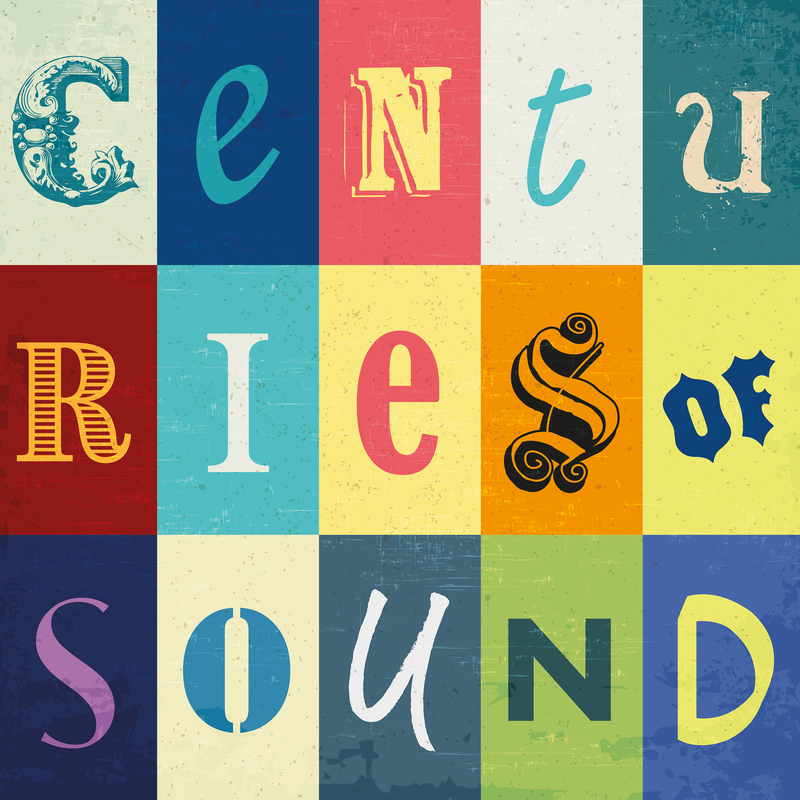
This episode currently has no reviews.
Submit Review- Podcast |
- Centuries of Sound
- Publisher |
- James Errington
- Media Type |
- audio
- Categories Via RSS
- Publication Date |
- Apr 02, 2018
- Episode Duration |
- Unknown
Psst – come and join my Patreon here – https://www.patreon.com/centuriesofsound – and get access to our radio podcasts in January!
of-bess-wallace-and-mary-paxton.jpg?resize=1024%2C769&ssl=1" alt="Photograph of Bess Wallace and Mary Paxton" width="1024" height="769">
MP3 direct download | Itunes | Mixcloud | Feedburner (RSS) | MP3 pack
Escaping a blinkered view of early 20th century recorded music sometimes seems like an impossible task. If the Edwardian era is often viewed as a blissful unknowing summer before the long winter of the First World War, its music is too easy to mentally group into the precursors and the Victorian hangovers, destined for confluence and extinction respectively. For the Edwardians, however, this is all utterly alien; their music, art and culture were modern to them, and the artistic movements they could sense were rooted in their own present and near past as much as ours are. The best artists of this time seem to be reaching forward towards something, but in most cases its a future which they couldn’t make happen. The most interesting things here are heading for a cul-de-sac. That doesn’t mean they are without value, just that they are more more distant, harder to place in a simple narrative.
In America, bands and soloists are still at the cutting edge. Separated by an ocean and a music industry from the classical tradition, musicians grow up playing the stomping rhythms and building-block melodies of Sousa and Gilmore in small-town brass bands. At the dawning of the Progressive Era, soloists are increasingly trying to break out of this straight-jacket while remaining wedded to the musical establishment which promoted them in the first place. Some, like Arthur Pryor, would give up their position to become bandleaders themselves, going on to direct music of a much more conservative bent than their free-ranging solos.
In Russia, on the other hand, the classical tradition and folk music are very much alive and immediate. Three of “The Five” (Balakirev, Cui, Mussorgsky, Rimsky-Korsakov and Borodin) were still alive, and their mission to popularize Russian national traditions in classical music continued to be hugely influential. With the collapse of Berliner Gramophone a host of new record labels were springing up, many of them releasing recordings of opera and folk songs. The medium being well-suited to peacocking, as demonstrated by soprano Maria A. Mikhailova as she performs in a dizzying musical battle with a flute.
Then there’s the world of the stage – vaudeville, Broadway, and the host of regional theatres running touring shows. Much of their output consisted of mildly updated variations on the old minstrel-show theme (a couple of higher quality examples of this from Silas Leachman and S.H. Dudley appear on this mix – a warning that they both feature the disgusting racist language that was endemic at the time) but one double-act were breaking through the consensus to present something with more of a honest, human face. George Walker and Bert Williams were two black performers who started their careers in the usual blackface minstrel troupes, before meeting in San Francisco in 1893 and deciding to set up a highly-original show called “The Gold Bug,” which consisted of songs, dance and sketch comedy. Minstrelry at this point had become highly ritualised, with stock characters performing in a set of predictable routines. Williams and Walker, aside from their jettisoning of these conventions, wrote songs about the realities of life without either the cheerful chuckle or the sardonic wink that was expected in popular entertainment, and it’s a complete breath of fresh air to hear.
We are no closer to the jazz age in 1901 than we were in 1898, but I’m not sure I mind. Mainly due to a vast increase in the pool of available recordings, this is the first mix which I find a joy from start to finish.
Tracks
Arthur Pryor with Sousa’s Band – The Patriot 0:00 Bert Williams – All Going Out And Nothin Coming In 3:04 Cal Stewart – Uncle Josh’s Huskin’ Bee Dance 5:46 Kendle’s First Regiment Band – Cotton Blossoms 6:11 Dan Leno – Huntsman 8:55 Orkestr Garmoniy – Vo Sadu Li v Ogorode 9:18 Chanté Par Polin – La Dernière Carotte 10:48 Sousa’s Band – Pasquinale 11:27 Len Spencer – Scene At A Dog Fight 13:23 Gilmore’s Band – Poet And Peasant Overture 14:34 Steve Porter – Backyard Conversation Between Two Irish Washerwomen 16:43 Burt Shepard – When The Gentle Breezes Blow 16:55 Silas Leachman – Truscalina Brown 18:44 Chimes – Nearer My God To Thee 21:46 Columbia Band – El Miserere (Il Trovatore) 22:50 Cal Stewart – Uncle Josh At The Opera 25:45 Leonid Sobinov – La Donna è Mobile 26:10 Irene Abendroth – 5 Romanzen Und Lieder, Op. 84- No. 4. Vergebliches Standchen 28:04 Maria A. Mikhailova – Charmant Oiseau 29:53 Feodor Stepanov & Mikhail Volf-Izrael – Nocturne, Op 56 No 4 32:47 John C Martin – Arbucklenian Polka 35:42 Len Spencer & Gilbert Girard – The Imperial Minstrels 36:52 Metropolitan Orchestra – Impecunious Davis 37:03 Edison Concert Band – Commercial Traveller’s March 39:10 Hager’s Band – Oriole Polka 40:31 Len Spencer – Con Clancy’s Christening 42:37 S.H. Dudley – The Whistling Girl 42:48 Polin – La Boiteuse Du Régiment 44:58 Peter Nevsly – Polka / Kamarinskaya 47:56 Gryunert, S.I.Bol’m – Fantaziya 50:37 Kin’nosuke – Tokiwazu ; Modoribashi 51:27 Peerless Orchestra – Birds And The Brook 53:02 Williams & Walker – I Don’t Like That Face You Wear 54:09 Edison Quartet – Sleigh Ride Party – Jingle Bells 56:58
This episode currently has no reviews.
Submit ReviewThis episode could use a review! Have anything to say about it? Share your thoughts using the button below.
Submit Review